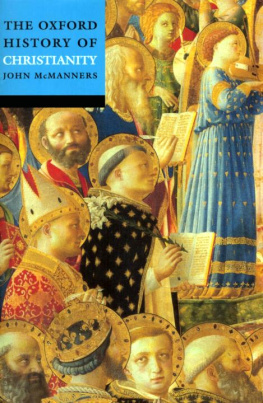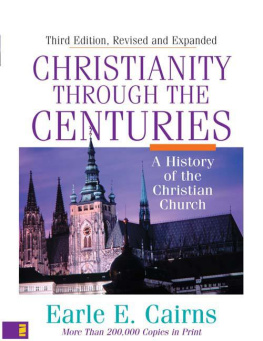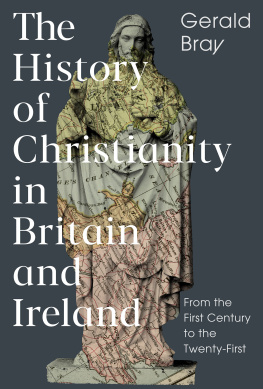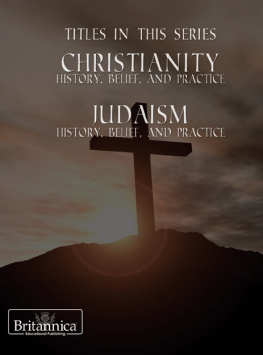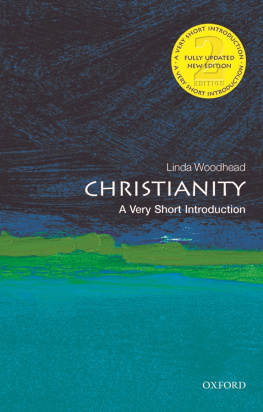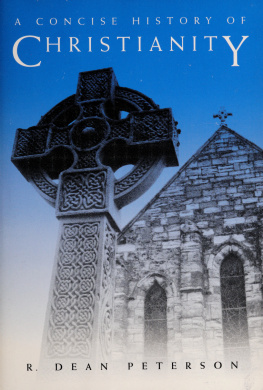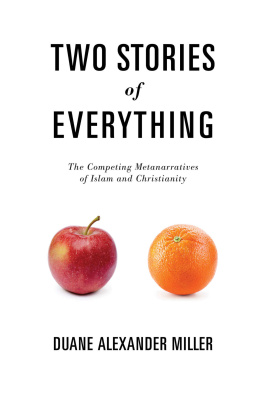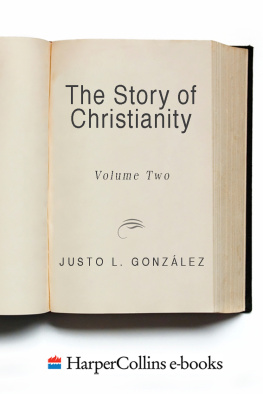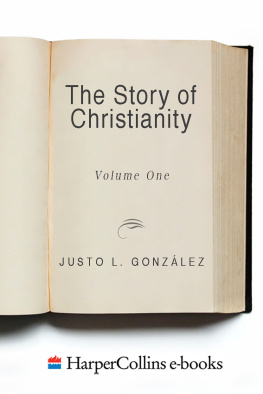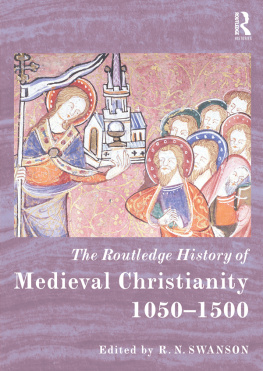John McManners is a Fellow of All Souls College, and Regius Professor Emeritus of Ecclesiastical History at the University of Oxford. He has written extensively on French and European history. His fifth book, Death and the Enlightenment (OUP, 1981), was awarded the Wolfson Literary Prize for History, and was one of The Times ten best non-fiction books of the year.
Henry Chadwick, Regius Professor Emeritus of Divinity, and Master of Peterhouse, Cambridge
Robert Markus, Professor Emeritus of Medieval History, University of Nottingham
Henry Mayr-Harting, Regius Professor of Ecclesiastical History, St Peter's College, Oxford
Kallistos Ware, Bishop of Diokleia, Spalding Lecturer in Eastern Orthodox Studies, and Fellow of Pembroke College, Oxford
Jeremy Johns, Lecturer in Islamic Archaeology, University of Oxford
Colin Morris, Professor of Medieval History, University of Southampton
Patrick Collinson, Professor Emeritus of Modern History, University of Cambridge
John McManners
Owen Chadwick, Regius Professor Emeritus of Modern History, University of Cambridge
Martin Marty, Fairfax M. Cone Distinguished Service Professor, University of Chicago
Fredrick B. Pike, Professor Emeritus of History, University of Notre Dame, Indiana
Peter Hinchliff, Former Fellow of Balliol College, Oxford
Kenneth Ballhatchet, Emeritus Professor of the History of South Asia, University of London, and Helen Ballhatchet, Associate Professor, Keio University, Japan
Sergei Hackel, Formerly Reader in Russian Studies, University of Sussex, and Vicar-General of the Russian Orthodox Church in the British Isles
Maurice Wiles, Regius Professor of Divinity, University of Oxford
Bryan Wilson, Reader in Sociology, University of Oxford, and Fellow of All Souls College, Oxford
Basil Mitchell, Nolloth Professor Emeritus of Philosophy of the Christian Religion, and Fellow of Oriel College, Oxford
John V. Taylor, Formerly General Secretary of the Church Missionary Society, and Bishop of Winchester
Edited by
JOHN McMANNERS






viii
I
JOHN McMANNERS
FROM THE ORIGINS TO 1800
HENRY CHADWICK
ROBERT A. MARKUS
HENRY MAYR-HARTING
KALLISTOS WARE
JEREMY JOHNS
COLIN MORRIS
PATRICK COLLINSON
JOHN McMANNERS
JOHN McMANNERS
CHRISTIANITY SINCE 1800
OWEN CHADWICK
MARTIN MARTY
FREDRICK PIKE
PETER HINCHLIFF
KENNETH AND HELEN BALLHATCHET
SERGEI HACKEL
CHRISTIANITY TODAY AND TOMORROW
MAURICE WILES
BRYAN WILSON
BASIL MITCHELL
JOHN TAYLOR
Christian communities in 10o and the journeys of St Paul 26-7
The Roman world to c.6oo 94-5
Eastern Christendom 130
Western Christendom in io5o 207
Italy in the thirteenth century 218
Central Europe after the Reformation, 1618 280
Christian Europe in 1490 on the eve of the expansion 312-13
The world in 15oo: organized states and religions 316-17
Distribution of main Christian denominations in the United States of America, 1980 400-1
Christianity in Contemporary Africa 495
'JESUS, Jesus of Nazareth: I can't remember him'. Pontius Pilate, in retirement, talks over the old days in Jerusalem; the name of a crucified miracle-worker, Jesus of Nazareth, comes up; it eludes him. The story was published by Anatole France in an anticlerical newspaper on Christmas Day 1891, to alarm pious ladies and enrage the cures. Yet this tale for agnostics has a double edge. A spark had been ignited which was to burn on through the centuries long after Rome had fallen, but the intellectuals and rulers of the empire had been blind to the significance of the newly kindled flame. Despairing as he did of human intelligence and foresight, France was ironically conceding a point to the providentialist religious apologetics of his day. Christianity had won against all the odds: it was an astonishing success story.
The theme of God's domination of history and of his providential oversight of the church has continually recurred in Christian thought, and has often been used as an apologetical argument. From time to time the general concept was made specific, as in speculations about an allocation of miracles to ensure the success of the initial preaching, or about a millenarian climax when the faithful will be vindicated. The God of the Old Testament, who uses Assyria and Egypt and all worldly lordships as his instruments, was accepted as the Christian deity. For Augustine, Rome had grown great not, as Cicero held, because its rule was established on justice, but to form the cadre of recruitment for the `City of God'. The concept of divine control ran through the chronicle writers of the Middle Ages, and was finally elevated by Bossuet, in his Universal History (1681), onto a plane of baroque splendour. `Remember, Monseigneur', he tells the heir to the French throne, for whom the book was written, `the whole long chain of individual causes which create and destroy empires depends on the secret orders of the Divine Providence. From the highest heaven, God holds the reins of every kingdom; all hearts are in his hand'. While it was a warning to kings, the central theme was wider: `Empires crumble: religion alone endures'. As the idea of continuous and indefinite progress became acclimatized in European thought, it was annexed by Christians as well as by secular humanists, though with questions about God's `reserve power' as against human freedom and the laws of nature. Progress and providence become interdependent. The Victorian hymn-writer saw God working out his purpose `as year succeeds to year' until the consummation `when the earth shall be filled with the glory of God as the waters cover the sea'.

